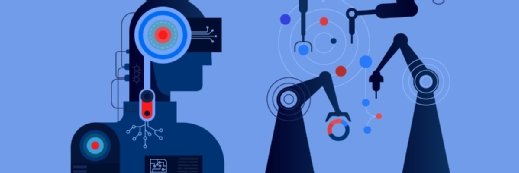
Getty Images
NLP Tool Flags Signs of Depression, Anxiety in Healthcare Workers
NYU Langone researchers found that a natural language processing tool could identify pandemic-related markers of psychological distress in healthcare workers.
Researchers at New York University (NYU) Grossman School of Medicine have demonstrated that a natural language processing (NLP) tool can effectively detect pandemic-related signs of anxiety and depression in healthcare workers’ conversations with their therapists, according to a study published this week in the Journal of Medical Internet Research AI.
The COVID-19 pandemic led to surges in infection rates throughout the United States, forcing hospitals to operate beyond capacity. The resulting increase in workload, hours, and personal infection risk, alongside other stressors, led to an uptick in the use of virtual psychotherapy.
The researchers noted that flagging the factors associated with these psychological distress markers is key to meeting healthcare workers’ mental health needs.
Thus, they leveraged an NLP model to analyze deidentified psychotherapy transcripts from telemedicine visits during the spring of 2020, the initial COVID-19 wave in the US.
The tool was given treatment transcripts from a study cohort of 820 emergency medical staff, clinicians, nurses, and other healthcare workers and 820 non-healthcare workers during the first three weeks of their psychotherapy.
Using these transcripts, the tool was tasked with identifying common phrases potentially associated with psychological distress. Anxiety was measured using the General Anxiety Disorder-7 questionnaire, while depression was measured using the Patient Health Questionnaire-9. Structural topic models (STMs) were used to determine treatment topics from each conversation.
For healthcare workers, STM analysis detected four treatment topics centered on healthcare—virus-related fears, working on the hospital floor and intensive care units, patients and masks, and healthcare roles including resident and attending—and five topics on mental health—panic attacks, affective disturbances, grief, sleep disturbances, and stress.
In the non-healthcare worker group, transcripts contained only one topic about the COVID-19 pandemic and one occupational-related topic.
These insights revealed that among healthcare workers, those who talked to their therapists about working in a hospital, mood issues, or lack of sleep were significantly more likely to be diagnosed with depression or anxiety than those who did not mention those topics.
“Our findings show that those working on the hospital floor during the most intense moment of the pandemic faced unique challenges on top of their regular job-related stressors which put them at high risk for serious mental health concerns,” said study lead author Matteo Malgaroli, PhD, an assistant professor in the Department of Psychiatry at NYU Langone Health, in a press release.
The research team further noted that the findings suggest the potential of NLP to help effectively screen for and detect signs of depression and anxiety in the future.
Further, the researchers indicated that NLP algorithms could also potentially be used by healthcare workers, who could use the tools to confidentially record themselves answering questions to assess their risk for certain mental health conditions. From there, the tool could provide recommendations for next steps, such as seeking help from a mental health professional.
For now, the researchers underscored that their tool only analyzed data from patients who were still early in their treatment. Moving forward, the research team plans to investigate how patients’ discussion topics evolve as their therapy progresses.







